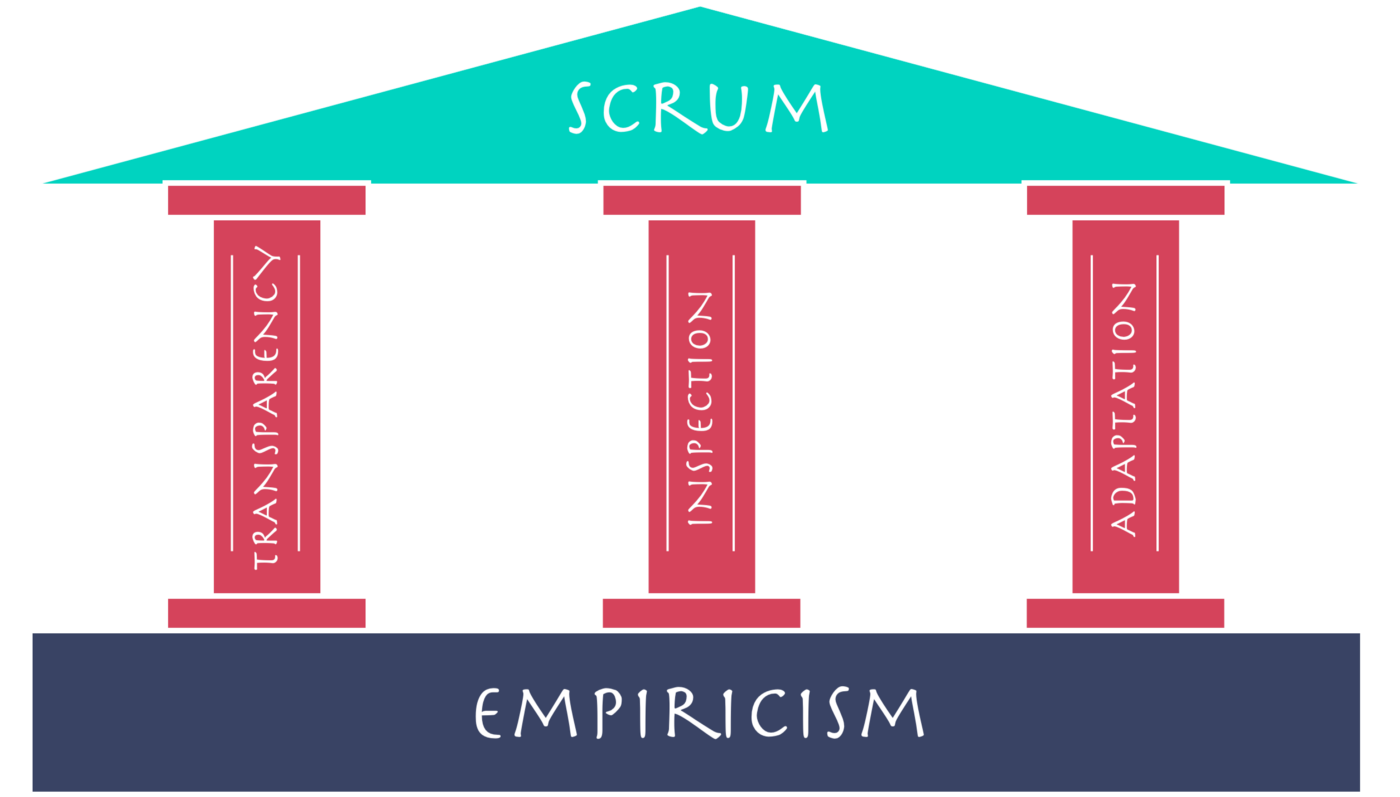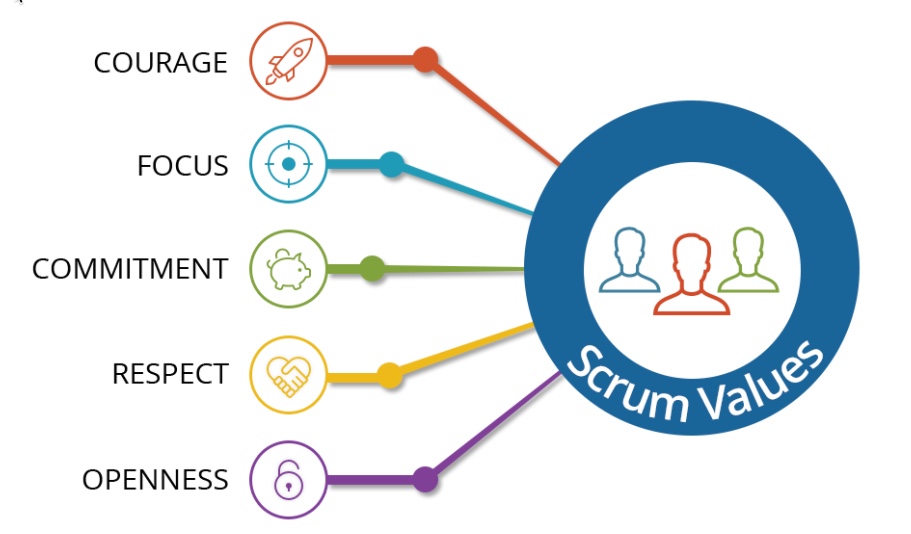'SCRUM THEORY' by Ken Schwaber and Jeff Sutherland
Scrum is founded on empirical process control theory or empiricism. Empiricism asserts that knowledge comes from experience and making decisions based on what is known. Scrum employs an iterative, incremental approach to optimize predictability and control risk.
Three pillars uphold every implementation of empirical process control: transparency, inspection, and adaptation.
Transparency:
Significant aspects of the process must be visible to those responsible for the outcome. Transparency requires those aspects to be defined by a common standard so observers share a common understanding of what is being seen.
Example:
A common language referring to the process must be shared by all participants; and,
Those performing the work and those accepting the work product must share a common
definition of “Done”.
Inspection:
Scrum users must frequently inspect Scrum artifacts and progress toward a Sprint Goal to detect undesirable variances. Their inspection should not be so frequent that inspection gets in the way of the work. Inspections are most beneficial when diligently performed by skilled inspectors at the point of work.
Adaptation:
If an inspector determines that one or more aspects of a process deviate outside acceptable limits and that the resulting product will be unacceptable, the process or the material being processed must be adjusted. An adjustment must be made as soon as possible to minimize further deviation.
Scrum prescribes four formal events for inspection and adaptation, as described in the Scrum Events section of this article:
Sprint Planning
Daily Scrum
Sprint Review
Sprint Retrospective
'SCRUM VALUES' by Ken Schwaber and Jeff Sutherland
When the values of commitment, courage, focus, openness, and respect are embodied and lived by the Scrum Team, the Scrum pillars of transparency, inspection, and adaptation come to life and build trust for everyone. The Scrum Team members learn and explore those values as they work with the Scrum events, roles, and artifacts.
Successful use of Scrum depends on people becoming more proficient in living these five values. People personally commit to achieving the goals of the Scrum Team.
The Scrum Team members have the courage and commitment to do the right thing and work on tough problems. Everyone focuses on the work of the Sprint and the goals of the Scrum Team. The Scrum Team and its stakeholders agree to be open about all the work and the challenges with performing the work. Scrum Team members respect each other to be capable, independent people.
* Concept by Ken Schwaber and Jeff Sutherland
Scrum is founded on empirical process control theory or empiricism. Empiricism asserts that knowledge comes from experience and making decisions based on what is known. Scrum employs an iterative, incremental approach to optimize predictability and control risk.
Three pillars uphold every implementation of empirical process control: transparency, inspection, and adaptation.
 |
| 3 Pillars of Scrum Empirical Process |
Transparency:
Significant aspects of the process must be visible to those responsible for the outcome. Transparency requires those aspects to be defined by a common standard so observers share a common understanding of what is being seen.
Example:
A common language referring to the process must be shared by all participants; and,
Those performing the work and those accepting the work product must share a common
definition of “Done”.
Inspection:
Scrum users must frequently inspect Scrum artifacts and progress toward a Sprint Goal to detect undesirable variances. Their inspection should not be so frequent that inspection gets in the way of the work. Inspections are most beneficial when diligently performed by skilled inspectors at the point of work.
Adaptation:
If an inspector determines that one or more aspects of a process deviate outside acceptable limits and that the resulting product will be unacceptable, the process or the material being processed must be adjusted. An adjustment must be made as soon as possible to minimize further deviation.
Scrum prescribes four formal events for inspection and adaptation, as described in the Scrum Events section of this article:
Sprint Planning
Daily Scrum
Sprint Review
Sprint Retrospective
'SCRUM VALUES' by Ken Schwaber and Jeff Sutherland
When the values of commitment, courage, focus, openness, and respect are embodied and lived by the Scrum Team, the Scrum pillars of transparency, inspection, and adaptation come to life and build trust for everyone. The Scrum Team members learn and explore those values as they work with the Scrum events, roles, and artifacts.
Successful use of Scrum depends on people becoming more proficient in living these five values. People personally commit to achieving the goals of the Scrum Team.
 |
| 5 Main values of Scrum Team |
The Scrum Team members have the courage and commitment to do the right thing and work on tough problems. Everyone focuses on the work of the Sprint and the goals of the Scrum Team. The Scrum Team and its stakeholders agree to be open about all the work and the challenges with performing the work. Scrum Team members respect each other to be capable, independent people.
* Concept by Ken Schwaber and Jeff Sutherland


0 comments:
Post a Comment